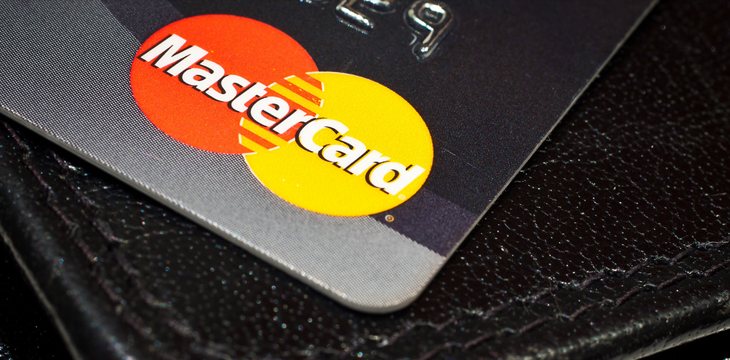|
Getting your Trinity Audio player ready...
|
Prolific patent filer Mastercard has applied for protection of yet another blockchain innovation—a platform that would allow anonymous blockchain transactions, using a somewhat familiar method.
In what has been likened to a coin mixing or tumbling service, the patent application published by the U.S. Patent and Trademark Office (USPTO) describes a system for splitting payments into separate transactions through a processing server to increase the anonymity of payments.
According to the filing, “The blockchain node may receive the request and may process the transaction to transfer the specific amount from the processing server’s blockchain wallet to that of the recipient device. In some embodiments, the processing server may notify the sender device and/or the recipient device of the transfer, which may also include the providing of a transaction record identifier for the second transaction.”
“As a result, the sender may transfer a specific amount of digital currency to the recipient with increased anonymity, as the blockchain may reflect only that the sender sent currency to the processing server and that the recipient received currency from the processing server. When using the processing server across multiple transactions, and with multiple entities using the processing server, the true source or destination for any transaction is obscured to the point of being impossible to identify,” it noted.
Coin mixing or tumbling has been used in blockchain payments for years, provided as a service to crypto users. The process works by combining input transactions from multiple senders, combining them into one larger amount, then automatically paying out transactions from the recipient address—thereby detaching the sender from the receiver for anonymous transactions.
According to the patent documentation, the Mastercard system would mean completely anonymous transaction data.
It explained, “If used for each transaction, a nefarious actor looking at the transactions for the sender 104 will only see transfers to and from the processing server, thus revealing no information about the sender’s spending habits, thus protecting the sender’s anonymity.”
In some embodiments, the processing server may utilize multiple blockchain wallets to further increase anonymity. In such embodiments, the processing server may possess a plurality of different cryptographic key pairs. […] In some embodiments, the processing server may also anonymize transactions via the obscuring of transfer amounts. In such embodiments, the processing server may break up the second transaction (e.g., the transfer to the recipient’s blockchain wallet) into multiple transactions, where the total amounts from each of the transactions equals the specific amount being transferred to the recipient by the sender. In some cases, each of the transactions may transfer an equal amount of currency (e.g., a total transfer of 36 units of currency may be accomplished in three transactions of 12 units of currency).”
It is unclear how Mastercard intend to proceed with the patent. However, it demonstrates the increasing number of use cases being found for the technology by companies like Mastercard, in recognition of the significant role blockchain is and will increasingly play in the payments sector.

 02-19-2026
02-19-2026 




